Dr Greger's article below helps us understand that flatulence is a normal part of our being. Most people overestimate how often they pass gas. Towards the end, he offers ideas for reducing gas production via bean consumption.
(2011) Beans & Gas: Clearing the Air. Excerpts:
(2012) Does adding baking soda to soaking beans reduce gas? says:
(2002) Bad Farts? Meat Stinks! A fair bit of this article focuses on the stinking flatulence produced due to sulfur containing compounds in meat. For reducing gas from beans, here is an idea in the article:
(2018) What You Should Know About Beans and the (Embarrassing) Gas They Cause — interesting article with citations to research papers. Here is an idea for gas reduction:
(2019) How Do I Avoid Gas and Bloating on a Plant-Based Diet? by Dr Thomas Campbell is a nice article. Some ideas for reducing gas from beans in this article:
- Discard the water you use to soak your beans (if you soak your beans overnight).
- Cook beans thoroughly, until they are soft.
-
Cook beans with a little kombu or wakame (seaweed), or a bay leaf
[Interestingly, Eden Organic Beans are salt-free but have kombu]
- Eat smaller meals.
- Eating slower. A substantial amount of gas in your gastrointestinal system is from swallowing air.
- Drinking plenty of water, which may assist with 'keeping things moving'.
- Paying attention to other beverages: coffee, alcohol, some teas may exacerbate stomach discomfort and bloating. Try eliminating these drinks.
In the video below, the opening question is about gas and bloating due to beans. Dr Bulsiewicz (Dr B) explains that beans are high in fiber and high in resistance starch, which are great for our health! However, beans are also high in galactans (FODMAPs) which may cause gas and bloating. What to do? Here are some ideas he offers:
- Go slow and low as we introduce new foods like beans. Ease your way into such foods if sensitivity (for example, gas and bloating) exists. Start small and increase over time. It will take time for the gut microbiome to adapt to the new foods that we are introducing in higher concentrations and higher proportions.
-
[Very important] Keep things moving — constipation means lot more gas and bloating from the same foods than otherwise. Dr B says that the #1 reason of gas and bloating among patients in his clinic is constipation. Water can help ameliorate constipation.
- For mild constipation, drinking water, increasing fiber intake and exercising can help to get things moving.
- For moderate to severe constipation, Dr B's first objective is to get things moving. Increasing fiber intake is secondary. If things are not moving, all that extra fiber may also lead to gas and bloating. Towards this goal, we can try taking Magnesium before bed time. Magnesium is good for the bowels, good for sleep and good for anxiety. It's even good for headaches.
- Eat more cooked foods prior to progressing to raw foods (cooked foods are easier to digest and reduce gas and bloating)
Beans and gas discussion starts at offset 2:18 in the video.
Video description:
Dr Klaper mentions four food categories known to cause gas and bloating: (a) cruciferous, (b) alliums (onion, garlic, …), (c) wheat & corn, baked goods, flours, glutinous grains, and (d) beans, peas and legumes. He recommends dropping them for a few days, then reintroducing them slowly. For details, please watch the video.
Rohini Bajekal, a nutritionist from UK, has published a wonderful infographic: 10 Tips for Reducing Gas and Discomfort from Beans and Lentils. These 10 points are:

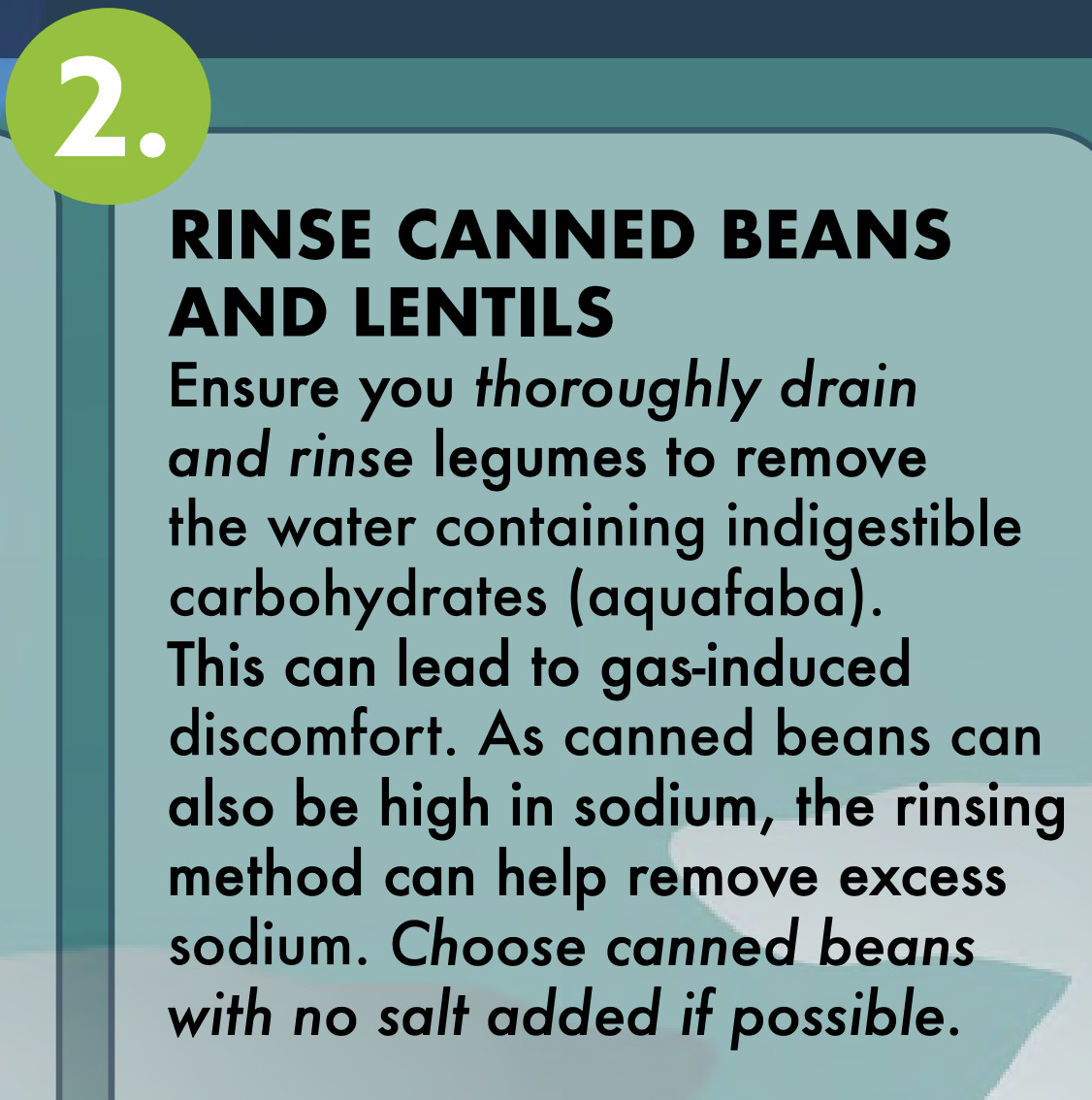
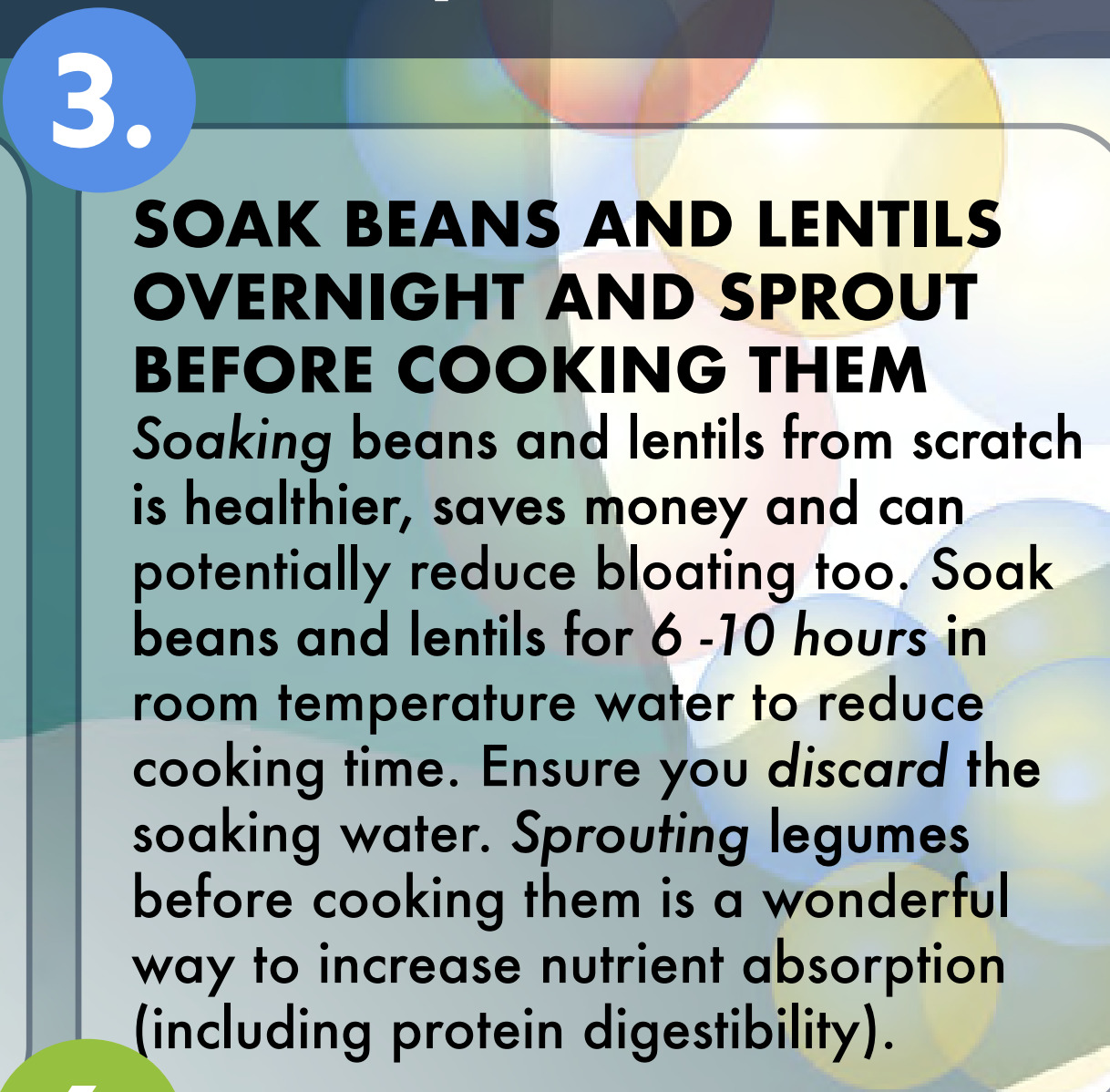
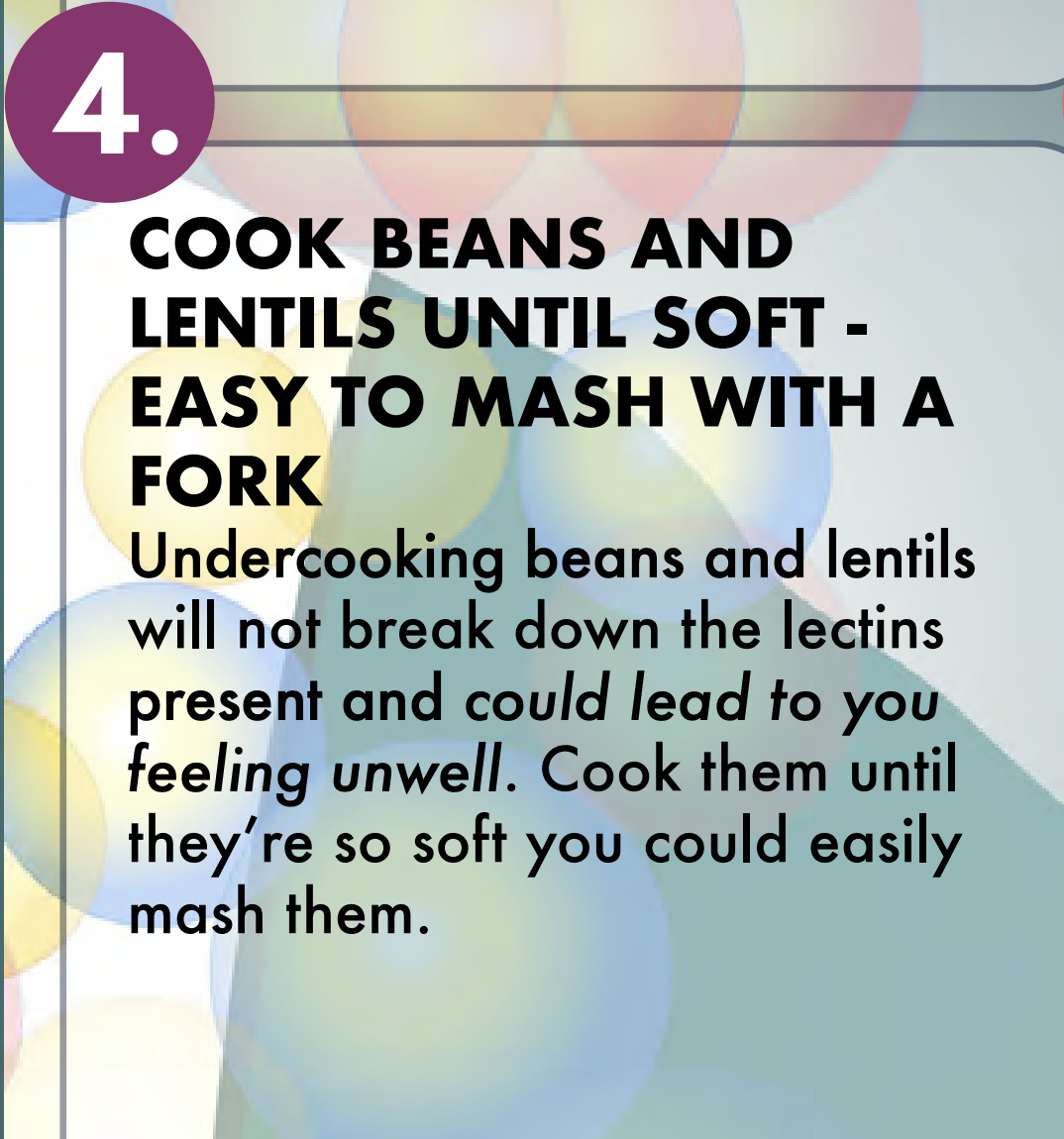

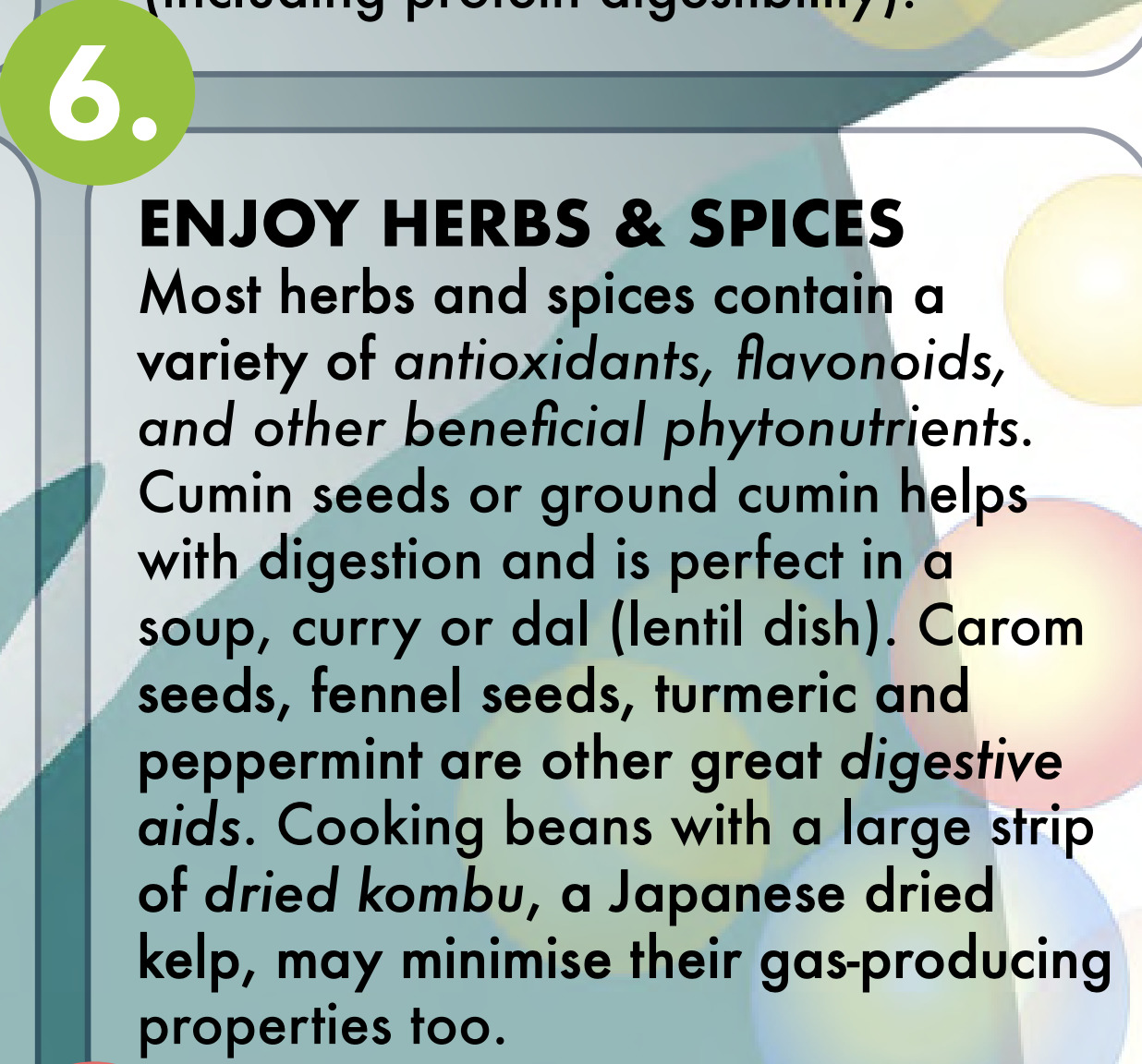
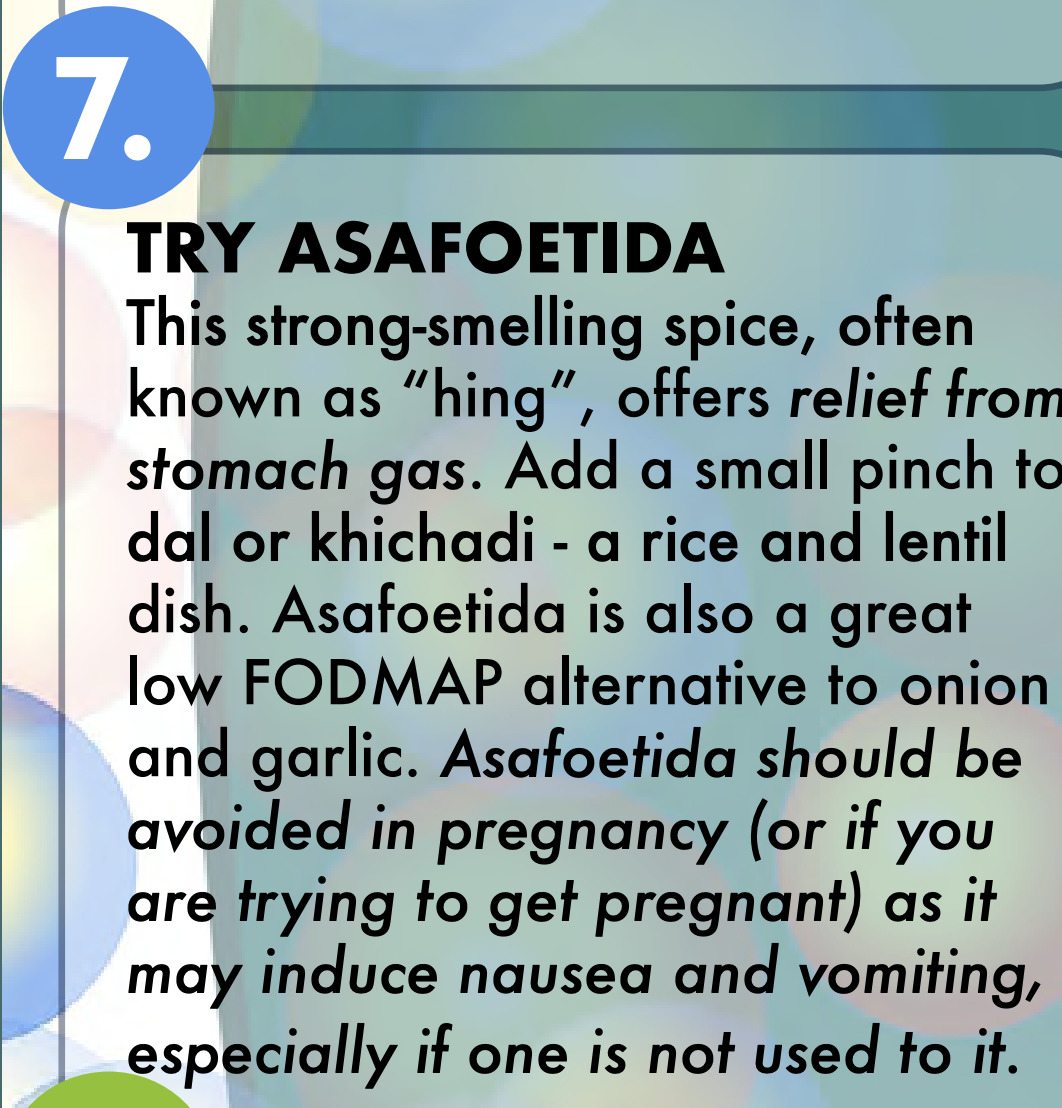
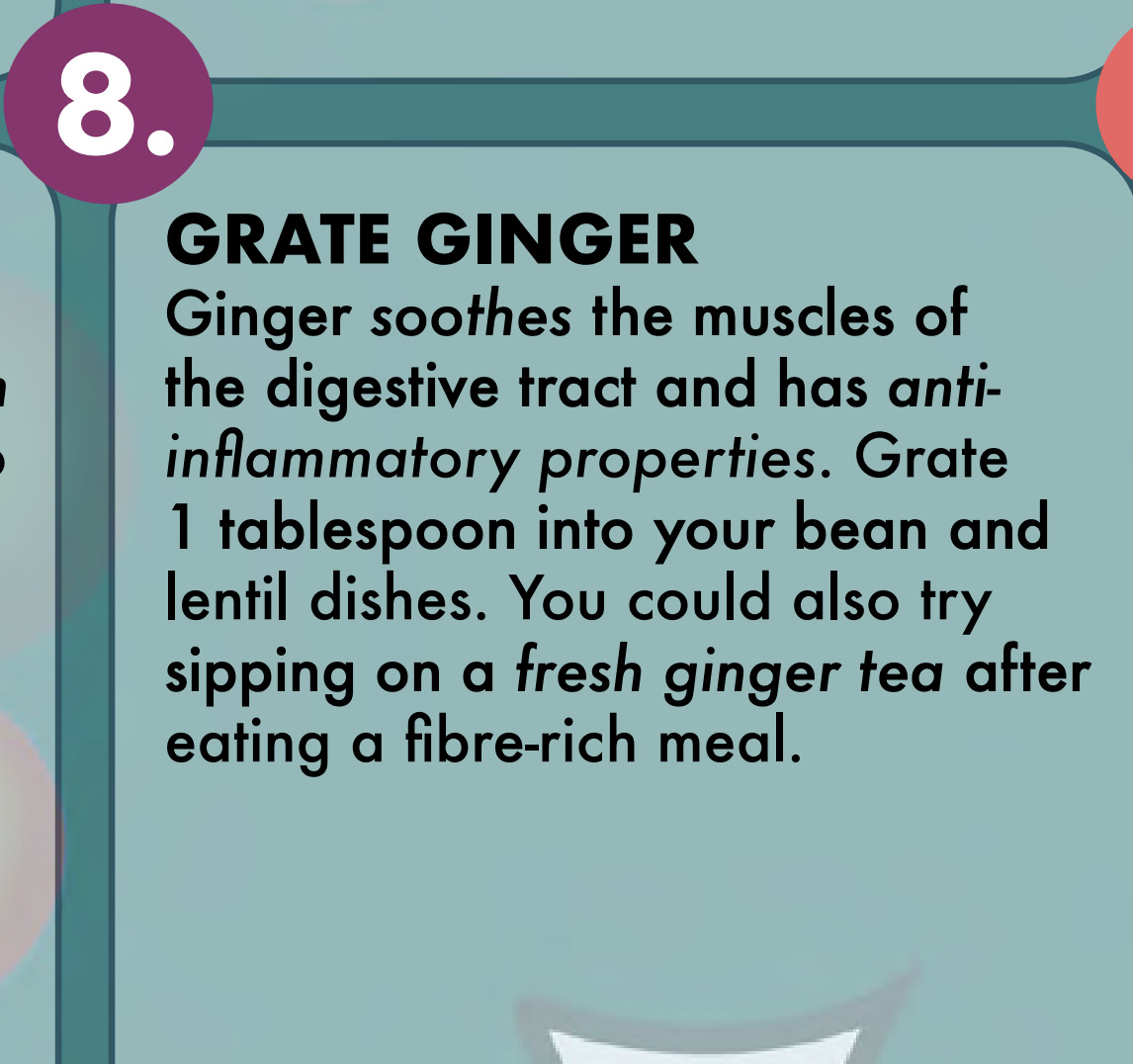
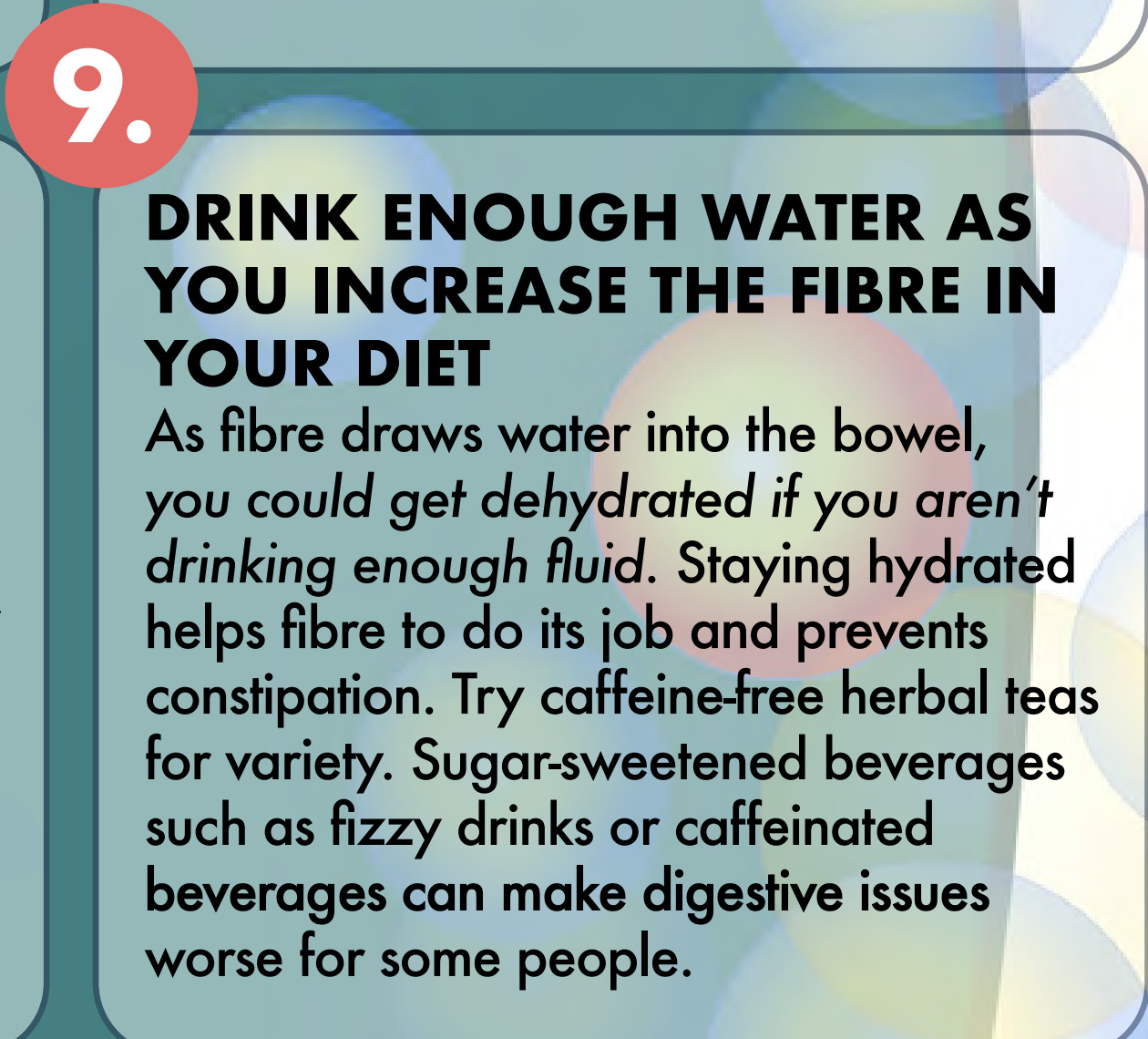

The video below by Bean Institute mentions epazote and garlic as additives to reduce flatulence.
An excellent with Dr Angie Sadeghi, a skillful and knowledgeable WFPB gastroenterologist in Los Angeles area.
In response to the very first question, Dr Sadeghi shares her personal experience with serious gas and bloating when she introduced a mere 2-3 pieces of broccoli in her diet! She was fibrer challenged. How did she build up her capacity to eat a fiber-rich Whole Food Plant-Based diet? She explains.
The whole interview is insightful. Helpful for those who struggle to consume fiber-rich meals.

 Instagram
Instagram YouTube
YouTube